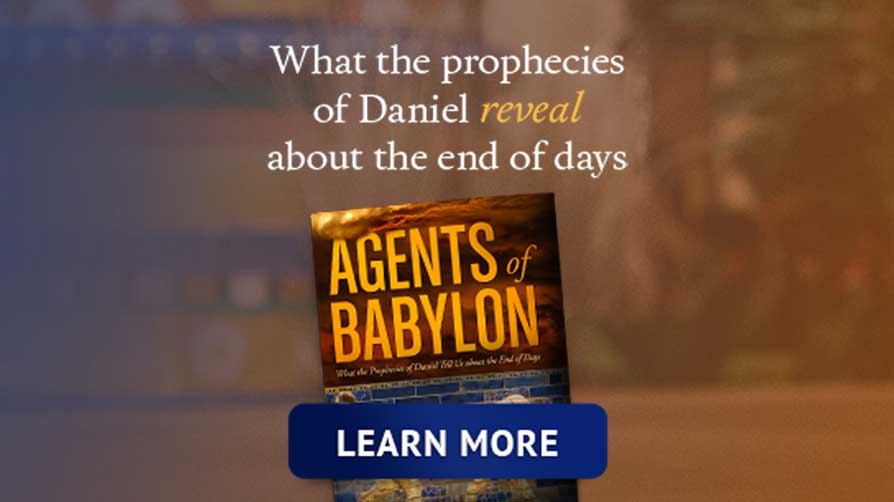Alone: Feeling or Fact?
It was almost like a scene from the 2000 movie starring Tom Hanks, Cast Away. A giant container ship is plowing through the open sea when its crew spots a bearded man adrift in the water, perched on some kind of vessel. The ship’s captain radios authorities, and within a few hours, the man is rescued from a likely watery grave. Only this time it wasn’t a movie.
Louis Jordan, age 37, had lost his job and moved onto his 35–foot sailboat at a small marina on the coast of South Carolina. He spent months rehabbing the 50–year–old vessel, making it seaworthy, foraging wild foods, and living off fish he netted in the Intracoastal Waterway. On January 23, 2015, Jordan sailed his boat, Angel, into the open ocean where he spent the next 66 days alone—but not by choice.
Six days passed without Jordan’s parents hearing anything from their son, so they contacted the Coast Guard. Despite nearly two weeks of searching and spreading alert bulletins among maritime commercial companies, no one saw any signs of Louis Jordan or his sailboat. The Coast Guard even checked banking and other financial records up and down the East Coast to see if perhaps he had put it at another harbor and failed to notify his family. Nothing. It was as if Jordan had vanished into thin air—or beneath the surface of the ocean.
Enter the 1,000–foot German shipping vessel, Houston Express, on April 2—66 days after Jordan had left the South Carolina marina. Sailing 200 miles off the coast of North Carolina, the crew spotted a man sitting on top of what appeared to be a capsized boat. The German ship stopped, deployed a small rescue craft, and plucked Jordan off his upside–down sailboat. Within three hours, a Coast Guard rescue helicopter had retrieved Jordan from the deck of the container ship.
Sixty–six days alone on the ocean. It’s hard to imagine anyone surviving such an ordeal mentally or physically. Jordan caught fish and saved rainwater to sustain himself, and besides a broken shoulder that happened when his sailboat capsized and being dehydrated, he was in remarkably good shape physically. Spiritually and emotionally, he gave credit to prayer and the Bible: “When you hear about people surviving a long time, in hard conditions, they always [credit] the Bible. That’s the main thing that keeps people going. Power—there’s power in that like nothing else.”1
No argument there—we know the Word of God is “living and powerful… and is a discerner of the thoughts and intents of the heart” (Hebrews 4:12). Thankfully, Louis Jordan knew to rely on the promises of God’s Word.
While this story had a happy ending, I have to wonder what was going through Jordan’s mind when his sailboat capsized and all of his electronic gear—GPS, radio, emergency battery power—was ruined. Can you imagine the sense of aloneness when you scan the horizon, a full 360 degrees, and see nothing but that straight line where the sea meets the sky? Can you imagine the silence? Except for the sound of waves lapping against the sides of his overturned boat, there would have been no sound.
Then this ultimate thought: I may live the rest of my life alone. I may die alone on the ocean. I may be run over in the middle of the night by a thousand feet of surging steel, for which I represent nothing more than a piece of drifting flotsam. Can you imagine?
We are hardwired for company, for relationships, for interaction, and for love.
The human fear of living and dying alone has been a constant theme in literature and film, and for good reason: “It is not good that man should be alone” (Genesis 2:18). We are hardwired for company, for relationships, for interaction, and for love. As much as we crave a few moments, even a couple days of “alone time,” we reach our limit pretty quickly, and all the more in this digital age where we are often tethered to devices that keep us from losing touch.
And yet, being alone happens, if not by choice, then sometimes by circumstance. We may not be adrift on the ocean for two–plus months, but we can feel adrift from relationships, from purpose, from direction, from groups. And when that happens, we can even be tempted to think we’ve been set adrift from God Himself.
We need to plan for those unplanned feelings of aloneness by remembering: In Christ, we are never alone.
Alone: Feeling or Fact?
Let’s clarify our terms: There is a difference between being alone (fact) and feeling alone (feeling). They don’t always happen together. We can be alone without feeling alone, and we can feel alone without being alone. Or, if we’re adrift on the Atlantic Ocean, we can be and feel alone at the same time.
In fact, we don’t have to be in the middle of the ocean. We actually find ourselves alone at times in life as did many characters in the Bible. Adam was alone in the Garden of Eden; Moses was alone when he fled from Egypt into the wilderness; Joseph was alone in the cistern where his brothers threw him; David was alone when tending his father’s flocks as a teenage shepherd and later when he fled from Saul; Daniel was alone in a lion’s den, and his three friends were alone in a furnace; Elijah was alone in a cave on Mount Horeb; the prophets were often alone; Jonah was alone under a vine in Nineveh; Jesus was alone in the wilderness and on the cross; Paul was alone in prison… and the list goes on.
These biblical characters were in fact alone at times in their lives. In that way, they illustrate what is common to all of us: There will be times when we are alone in life.
And no doubt they felt alone to a degree. But instead of feeling guilty about feeling alone (feeling alone is not a sin), we can let feelings of aloneness be a signal. That’s what most of our biblical characters seem to have done. Yes, they were alone on occasion. And yes, they no doubt felt alone—probably intensely alone at times. But when their feelings became a signal, they called out to God. They knew they were not actually alone in life regardless of how they felt. They knew God was just a prayer away. In a pit, in a cave, in a lion’s den or furnace, in a wilderness, in prison, or on a cross, these mentors of ours did not allow their feelings to conquer their faith.
What about the times when you feel alone in spite of being surrounded by other people and activities? That probably describes more and more people in a crowded world full of “intimate strangers.” Whether we are actually alone or not, feelings of aloneness can create that most threatening of experiences. “Most threatening” because it is the opposite of that for which God created us: attachment and relationship.
In Christ, we are never alone.
It’s in those moments, when feelings of aloneness make us question ourselves as well as God, that we need to focus on a different faith–based fact: In Christ, we are never alone.
Alone: Feeling or Faith?
The Christian life is a fact–based, not feeling–based, relationship with God.
Fact #1: Aloneness was the only thing in the Garden of Eden that God said was “not good.” God wants us to enjoy His company and the company of others (Genesis 2:18).
Fact #2: God is everywhere. David, the psalmist, wrote a psalm about the impossibility of escaping God’s presence (Psalm 139). Whether you are a Christian or not, you are never alone because God is wherever you are.
Fact #3: Christ promised His apostles He would be with them until “the end of the age” (Matthew 28:20).
Fact #4: God promised His people in the Old and New Testaments that He would never leave or forsake them (Deuteronomy 31:6; Joshua 1:5; Hebrews 13:5).
Fact #5: Faith—believing those truths—is how we dispel feelings of loneliness when they surface in our life.
You and I are more likely to feel alone than we are to be alone. Even if both happen at the same time, we must remember: In Christ, we are never alone.
This article originally appeared in the August 2015 issue of Turning Points devotional magazine.
Sources:
1Steve Almasy, Ed Payne, and Nick Valencia, “Man rescued after 66 days at sea is ‘utterly thankful and grateful.’” April 3, 2015, CNN.com, <http://www.cnn.com/2015/04/02/us/rescued–after–66–days–at–sea/> accessed 4–11–15.
Featured
Most Popular
I need help

Your response has been received, and we will be praying for you.
Look for answers to some of the most common questions in the weeks ahead.










